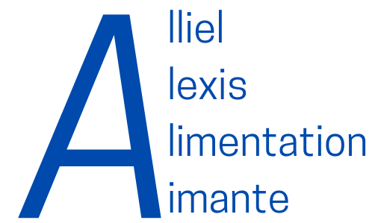Diet'ethics, a logistic of human needs
Ethical Dietetics for the International Community in Paris
My ethical approach to dietetics resonates particularly well with expatriates and international students who seek healthcare that aligns with their values. This philosophy emphasizes respect for the individual and cultural sensitivity in treatment.
For English speakers seeking ethical nutrition care: Non-judgmental approach respecting cultural food backgrounds Holistic care considering mental, physical, and social well-being Anti-diet culture philosophy appealing to international perspectives Respect for diverse cultural approaches to food and body image
The Dietitian: Energy Logistician
In my dietetic practice, I consider myself an energy logistician—a guide who helps each patient explore and harmonize various aspects of their life. My approach goes beyond mere dietary management: it embraces a holistic vision of the human being, addressing biological, emotional, mental, and relational needs. This in-depth work allows individuals to find their own balance and cultivate a compassionate collaboration with themselves. Together, we explore nutrition, lifestyle habits, sleep, physical activity, relationships, aspirations, and many other dimensions that influence health and well-being.
Understanding Personal Balance: A Holistic Approach
Personal balance is rooted in the interconnectedness of various dimensions of an individual. As an energy logistician, I support my patients in exploring and harmonizing the following elements:
Nutrition: Not just in terms of quantity and quality, but also considering the pleasure of eating, sensory satisfaction, and connection to physiological needs. A balanced and personalized diet supports daily energy while respecting natural hunger and satiety cues. It also enables sustainable care for one’s body.
Lifestyle habits: The organization of daily routines, stress management, and rituals have a direct impact on personal balance. For example, incorporating moments of pause, relaxation, or meditation can transform the quality of life.
Physical activity: As a source of energy and an emotional regulator, physical activity must be tailored to the patient’s abilities, preferences, and lifestyle. Whether it’s daily walking, yoga, dancing, or intense sports, physical activity is essential for good health.
Sleep: Optimal sleep quality is crucial for recovery, emotional regulation, and effective biological processes. Identifying factors that disrupt sleep, such as stress or screen exposure, is a key step toward restoring a reparative sleep cycle.
Mental and biological health: Mindset and physiological health form the foundation upon which balance can be built. It is essential to recognize influencing factors such as nutritional deficiencies, hormonal imbalances, or chronic stress and work toward their regulation.
Social relationships: Family, friends, colleagues, and social activities play a vital role in overall well-being. Identifying nourishing relationships and managing those that drain energy contributes to lasting balance.
Personality traits and values: Each individual has aspirations, behavioral patterns, and beliefs that influence decisions and balance. These elements allow for personalized support tailored to the patient’s unique personality.
Personal history: Our past and experiences shape our behaviors, especially those related to health and nutrition. Exploring this dimension helps understand certain blockages and develop suitable strategies.
Collaborating with Oneself
The goal of this work is to cultivate an authentic collaboration with oneself. This approach establishes a harmonious relationship with the body and mind, thereby facilitating natural biological regulation and enhanced serenity. Here’s how I proceed:
1. Caring for Oneself with Precision and Kindness
Fostering a compassionate relationship with oneself involves recognizing genuine needs without judgment. This includes:
Listening to oneself: Identifying desires and needs without guilt, especially regarding food and emotions.
Awareness: Observing habits and their impacts on well-being without striving for perfection.
Education: Understanding the connections between nutrition, emotions, health, and energy. For example, learning to decode bodily signals like hunger or fatigue.
2. Facilitating Balanced Biological Regulation
Dietary imbalances, stress, or lack of sleep often disrupt biological regulation. My role is to help:
Optimize nutritional intake to support energy and health.
Introduce tailored rituals to improve sleep and reduce stress, such as relaxation exercises before bed.
Propose physical activity strategies that promote well-being without pressure, respecting the patient’s preferences and limitations.
3. Exploring Relationships and Life Context
Our interactions with the external world directly influence our balance. This includes:
Working on family and friendship relationships to build a strong support network.
Managing pressures related to work or studies to improve quality of life.
Valuing leisure activities and pursuits that nourish the soul, such as hobbies or creative passions.
4. Aligning Values and Aspirations
A mismatch between deep values and one’s lifestyle can create discomfort. My guidance helps the patient:
Identify personal and professional priorities.
Define goals aligned with their core aspirations.
Create routines and habits that reflect these values and foster lasting personal fulfillment.
The Benefits of This Approach
Adopting a holistic approach with a dietitian as an energy logistician offers multiple benefits:
Greater autonomy: Patients learn to understand themselves and manage their energy effectively without relying on temporary external solutions.
Reduced stress: By identifying sources of tension and finding strategies to alleviate them, patients achieve a state of inner calm.
Overall health improvement: Behavioral regulation fosters sustainable balance, both physically and mentally.
A sense of serenity: Cultivating a compassionate relationship with oneself enables living more harmoniously and being better anchored in the present.
Conclusion
In my practice, being an energy logistician means guiding patients toward a deep understanding of themselves and holistic harmony. This approach goes beyond nutrition, encompassing all dimensions of the individual: physical, mental, social, and emotional. Together, we build a compassionate and fair collaboration with oneself, enabling better responsiveness to needs and fostering a dynamic of lasting well-being. This unique perspective makes every consultation a privileged moment to sow the seeds of long-term balance.
📚 Values-Based Nutrition: Discover our vegetarian and vegan guide and understand food anthropology. Be aware of orthorexia risks.


Primum Non Nocere
Ethics in Dietetic Care: First, Do No Harm
Ethics form the cornerstone of dietetic care, guiding every decision and interaction between the dietitian and their patients. At the heart of this ethical framework lies the principle of primun non nocere — "first, do no harm." While this principle originates in medical ethics, its relevance in dietetics is profound. Beyond helping patients achieve nutritional goals, dietitians must also ensure their recommendations and practices do not inadvertently cause harm. This article explores the ethical imperatives of dietetic care, emphasizing the importance of avoiding iatrogenic risks and fostering a holistic, respectful approach to health and well-being.
Understanding Primun Non Nocere in Dietetics
In the context of dietetic care, primun non nocere implies:
Avoiding Harmful Recommendations: Dietitians must carefully evaluate the potential risks of their advice, considering both short-term and long-term consequences.
Addressing Individuality: Each patient is unique, with specific needs, preferences, and circumstances. A one-size-fits-all approach risks overlooking these nuances and causing unintended harm.
Prioritizing Holistic Well-being: Beyond physical health, dietitians should consider the emotional, psychological, and social dimensions of their patients' lives.
Iatrogenic Risks in Dietetic Care
Iatrogenic risks refer to harm inadvertently caused by healthcare interventions. In dietetics, these risks can arise from inappropriate recommendations, overemphasis on weight loss, or neglect of psychological and social factors. Some common examples include:
1. Nutritional Deficiencies
Overly restrictive diets can lead to deficiencies in essential nutrients. For example, eliminating entire food groups without appropriate substitutions may result in deficiencies in vitamins, minerals, or macronutrients, potentially compromising the patient’s overall health.
2. Disordered Eating Patterns
Focusing excessively on calorie counting, portion control, or "clean eating" can unintentionally promote unhealthy relationships with food. Patients may develop disordered eating behaviors, such as orthorexia, binge eating, or chronic dieting.
3. Psychological Distress
Recommendations that are too rigid or unrealistic can cause stress, guilt, or shame when patients struggle to comply. This can erode their self-esteem and exacerbate mental health conditions such as anxiety or depression.
4. Social Isolation
Dietary plans that severely restrict certain foods or eating behaviors may isolate patients socially, as they avoid shared meals or feel stigmatized by their choices.
5. Weight Stigma and Bias
Overemphasizing weight loss as the primary marker of success can perpetuate harmful weight stigma. This not only affects the patient’s mental health but also risks overshadowing other crucial health indicators.
Ethical Principles to Mitigate Harm
To minimize iatrogenic risks and uphold the principle of primun non nocere, dietitians can incorporate the following ethical principles into their practice:
1. Individualized Care
Each patient’s unique context—including their medical history, lifestyle, cultural background, and personal preferences—must guide care. Individualized recommendations ensure that dietary plans are realistic, sustainable, and aligned with the patient’s goals.
2. Holistic Perspective
Dietitians should adopt a holistic approach, addressing not only physical health but also emotional, psychological, and social well-being. This includes exploring the patient’s relationship with food, their self-perception, and the impact of societal pressures.
3. Informed Consent and Education
Patients should be active participants in their care. Providing clear, evidence-based information empowers them to make informed decisions. Transparency about potential risks and benefits fosters trust and collaboration.
4. Non-judgmental Support
Creating a safe, empathetic space allows patients to share openly without fear of judgment. This is particularly important for individuals navigating complex challenges such as eating disorders or chronic illnesses.
5. Avoiding Weight-centric Approaches
While weight management may be relevant for some patients, it should not be the sole focus. Prioritizing behaviors that support overall health—such as balanced nutrition, regular physical activity, and stress management—can yield more meaningful and sustainable outcomes.
Practical Strategies for Ethical Dietetic Care
1. Collaborative Goal Setting
Work with patients to establish realistic, achievable goals that reflect their values and priorities. This collaborative approach respects the patient’s autonomy and fosters a sense of empowerment.
2. Regular Monitoring and Adjustment
Nutritional needs and life circumstances evolve over time. Regular follow-ups enable dietitians to assess progress, address challenges, and adjust recommendations as needed, minimizing the risk of harm.
3. Culturally Competent Care
Cultural sensitivity is essential to ethical practice. Recognizing and respecting cultural food traditions and preferences ensures that dietary plans are both effective and meaningful.
4. Interdisciplinary Collaboration
Complex cases often require input from multiple professionals, such as psychologists, physicians, or physical therapists. Collaborating within an interdisciplinary team ensures comprehensive care and reduces the likelihood of harm.
5. Continuous Professional Development
Staying informed about emerging research and best practices allows dietitians to provide evidence-based care and avoid outdated or potentially harmful interventions. It's important to develop a professionnal hygiene, that are a set of habits that keep you sharp.
Conclusion
Ethical practice in dietetic care demands a commitment to primun non nocere and a vigilant awareness of iatrogenic risks. By prioritizing individualized, holistic, and compassionate care, dietitians can support their patients’ well-being while minimizing potential harm. This approach not only upholds the integrity of the profession but also fosters trust, respect, and meaningful, lasting improvements in patients’ lives. In the end, ethical dietetics is about more than providing nutritional advice—it is about empowering individuals to thrive in harmony with their unique needs and circumstances.
📚 Values-Based Nutrition: Discover our vegetarian and vegan guide and understand food anthropology. Be aware of orthorexia risks.
Vivre et manger sont les deux faces de la même pièce
Lighten your relationship with food and free yourself from what hinders you!
+33 6 22 41 55 21
© 2024. All rights reserved.
RPPS : 10007258733
N° ADELI : 75 95 0878 1
